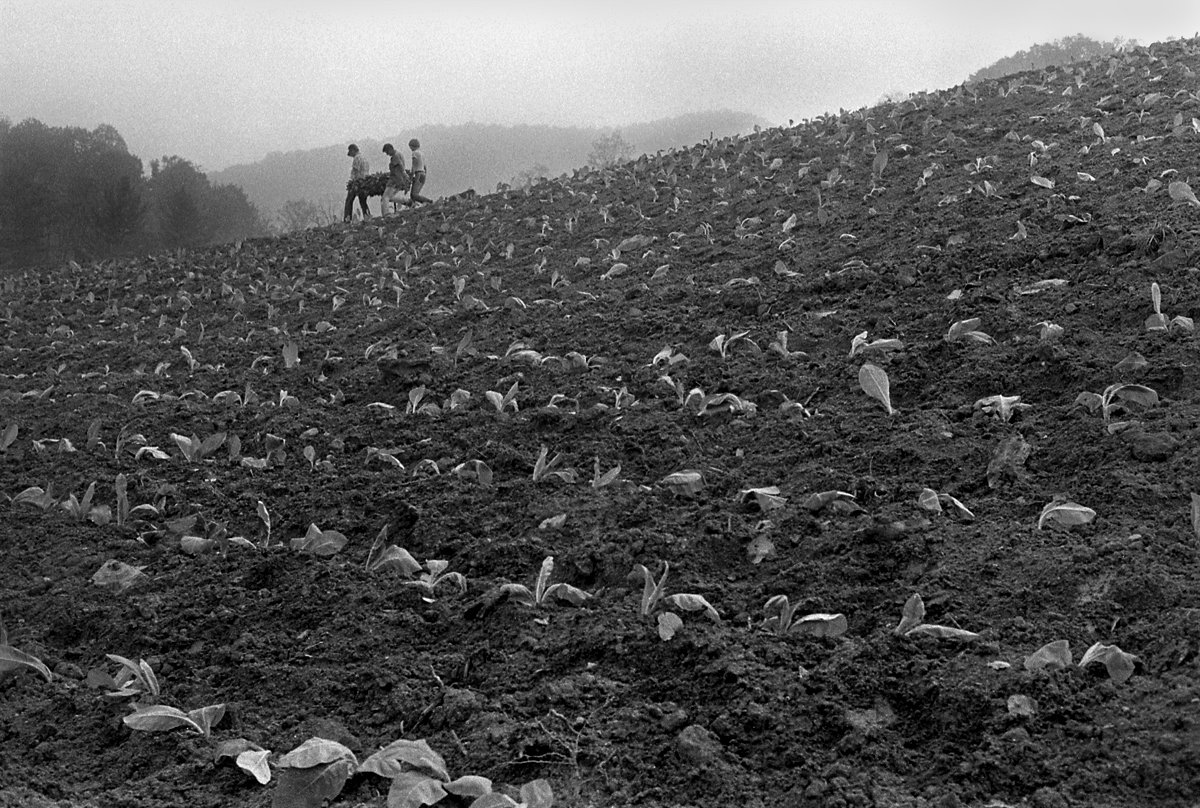Not long after Mothers’ Day, when the danger of a late frost had passed, farmers would begin setting out their tobacco plants. Depending on the lay of the land, this job was accomplished by tractor with two or four people riding a tobacco setter, or in this case by hand.
Hand setting had to be done during a wet season when the ground was moist from recent rains. It was a long process, laborious, and hard on your back. At the end of the day your boots carried many pounds of mud. It was not a job for the faint of heart. But as my friend Dellie Norton said to me, “We had to work at it, but the people up here liked to do the work. They was getting some pay out of it where they couldn’t get no pay out of anything else back in them days. It was really good that they could find something to make money from.”
I’ve written about this before, but it has always struck me as the height of irony that America’s leading cause of preventable death provided life for mountain farming communities. When I look at the top photograph it seems that the men aren’t carrying a basket of tobacco plants, but a casket. The metaphor is complete.
McKinley Massey and neighbors planting tobacco, Big Pine, 1982. From Sodom Laurel Album



